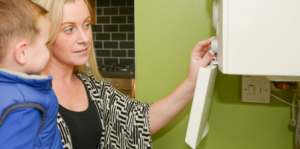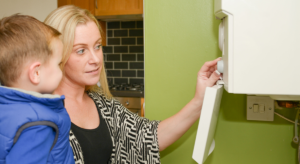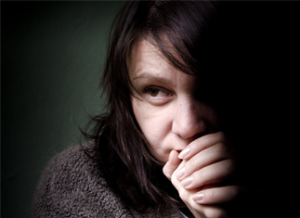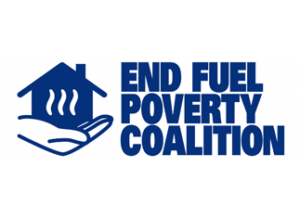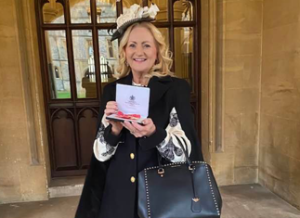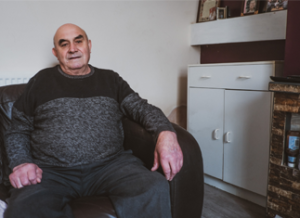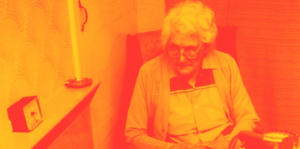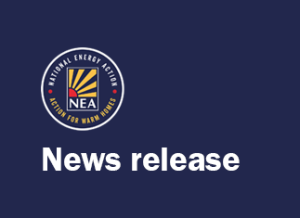- New polling by LucidTalk, commissioned by National Energy Action Northern Ireland (NEA NI), shows the extent of fuel poverty in Northern Ireland
- A quarter of respondents had gone without heating or electricity, while a third had worn coats indoors and one in 10 had skipped meals
- This comes despite 940 excess winter deaths in Northern Ireland of which at least 290 are attributed to a cold home
Ahead of Fuel Poverty Awareness Day, on Wednesday 27 November, National Energy Action Northern Ireland (NEA NI) reveals that over 40% of adults in the country say they are spending more than 10% of their total household expenditure on energy costs, meaning they are fuel poor.
The survey of 1,199 adults in Northern Ireland, commissioned by charity NEA NI and conducted by LucidTalk, also showed continued pressure on household budgets has led to a continued rise in detrimental ‘coping’ mechanisms.
A quarter (27% of households) said they went without heating (oil/gas) or electricity at a point during the last 24 months because they could not afford the costs of energy. This figure rose from 19% when NEA NI last conducted the poll in September 2023.
Respondents also said other coping mechanisms to deal with the rising energy prices and the cost of living included:
- reducing the use of central heating in their home (70%)
- using alternative heating sources such as coal fires and fan heaters (36%)
- sitting in a cold house wearing coats, blankets or using a hot water bottle (36%)
- reduced use of hot water (27%)
- skipping meals (9%).
11% of survey respondents say they are currently in debt, or have been in debt in the last 24 months, to their energy supplier. This is up from 9% last year.
Director of NEA NI, Pat Austin said,
‘Our new polling shows that too many people in Northern Ireland cannot stay warm, safe and healthy at home. They are going to bed early and in coats. They are racking up debt and they are struggling. The withdrawal of the Winter Fuel Payment and a woefully outdated fuel poverty strategy are piling pressure onto the most vulnerable households. The government must act with urgency and provide emergency support ahead of winter, alongside ensuring the promised fuel poverty strategy is appropriately funded and fit for purpose.’
Impact on renters
The survey showed that people in the private rented sector are disproportionally affected. 31% of NI respondents say that they or a member of their household’s health and wellbeing has been impacted by the rising energy prices and the cost of living. For people in the private rented sector the figure jumps to 56%.
44% of respondents say that their quality of life has been impacted. The figure rises to 65% in the private rented sector.
What can be done?
Financial schemes are the most popular policies that Stormont could introduce to assist with rising energy costs. ‘Provide greater financial assistance with energy bills’ (49%) ‘Expand schemes that provide financial support to improve the energy efficiency of homes’ (51%) being the most popular ‘actions’ the NI Assembly and NI Executive could take.
Despite the serious impact of cold homes on peoples’ health, the last fuel poverty strategy for Northern Ireland was produced in 2011, well before the cost-of-living and energy crises. In 2022/23, the Winter Excess Figures were released by the Northern Ireland Statistics and Research Agency (NISRA). There were 940 winter excess deaths, of which, according to the WHO at least one third (290) are directly attributed to people living in cold homes. The next fuel poverty strategy is due to be published in 2025.
NEA NI is calling for the new Fuel Poverty Strategy, due to be published in 2025, to be backed by a comprehensive funding and action plan. The charity also calls for the establishment of a statutory fuel poverty target and minimum energy efficiency standards, especially within the private rented sector.
NEA NI wants to see the introduction of an energy social tariff to support low-income and vulnerable households with unaffordable energy bills, and support for the cost of a just transition.
If you write about this on Twitter/X please include @NEANIreland and @LucidTalk
ENDS
Notes to Editors:
- National Energy Action (NEA), is the national fuel poverty charity, working across England, Wales and Northern Ireland, to improve the lives of people in fuel poverty. We directly support people with energy and income maximisation advice, and we advocate on issues such as the current energy crisis and the need to improve the energy efficiency of our homes. See: https://www.nea.org.uk/.
- Fuel Poverty Awareness Day is run by National Energy, the national fuel poverty charity, working across England, Wales and Northern Ireland, to improve the lives of people in fuel poverty. For more information, check out https://www.nea.org.uk/who-we-are/nea-campaigns/fpad/
- The definition of fuel poverty that National Energy Action uses is that a household is in fuel poverty if it needs to spend 10% or more of its income on energy in order to maintain a satisfactory heating regime.
- The recommended temperature to heat your home is between 18-21C.
- Around 68% of households in Northern Ireland rely on home heating oil, a non-regulated fuel.
- NEA commissioned Lucid Talk to carry-out a NI wide attitudinal poll. For this project, online polling was carried out over a period of 4 days from 13 to 16 September 2024. The project targeted the established Northern Ireland (NI) LucidTalk online Opinion Panel (16,000+ members) which is balanced by gender, age-group, area of residence and community background to ensure it is demographically representative of Northern Ireland.
2,696 full responses were collated, and 1,199 full responses were recorded and used for analysis in terms of the final results.



